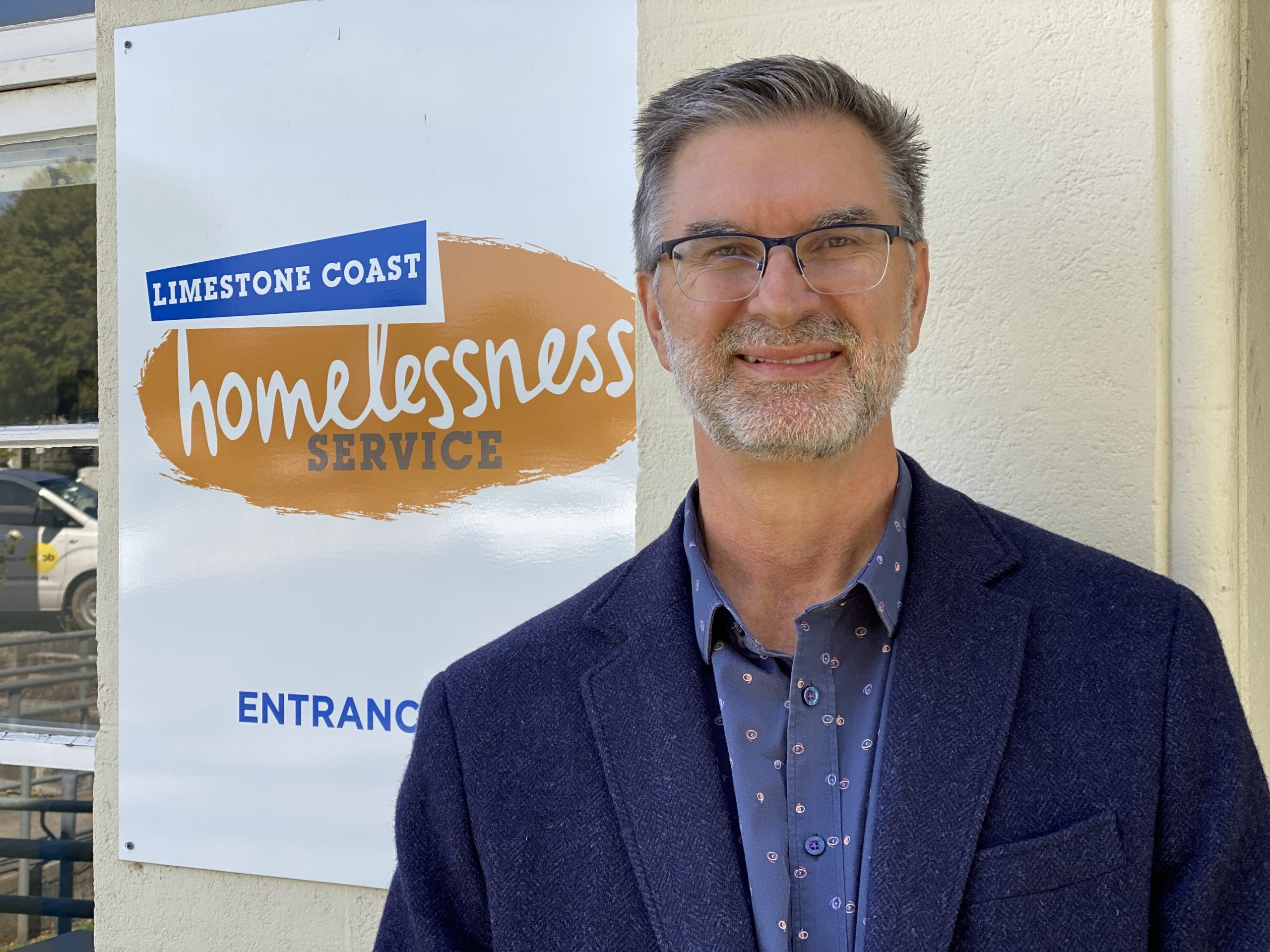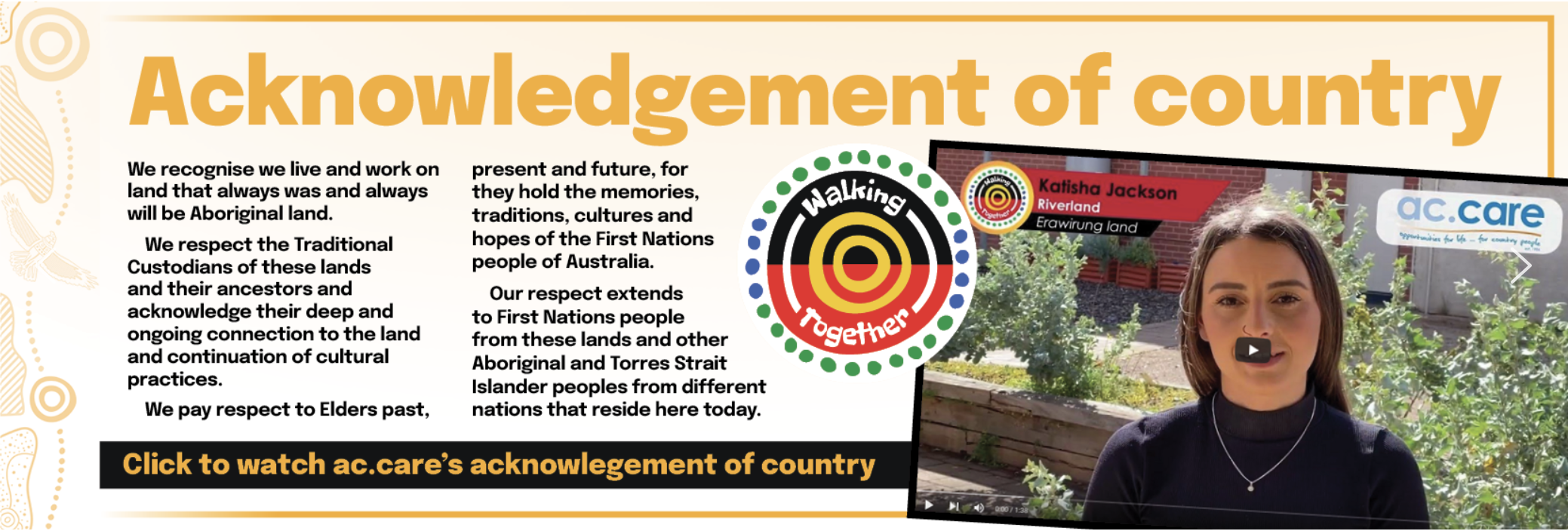By Shane Maddocks
COVID-19 and its impact on the housing market has left South Australia on the precipice of an unprecedented homelessness challenge.
ac.care proudly works with regional South Australian communities to ensure all country people have safe homes and enough money to live on, providing opportunities to overcome adversity and build a secure future.
A core part of our work is supporting vulnerable people to maintain or secure tenancies to avoid homelessness.
Last year, our services grappled with new challenges, as did the rest of our society, in the wake of the COVID-19 pandemic, supporting individuals and families as they faced sudden uncertainty over the future of their employment, income and housing security.
Significant government assistance throughout this time was vital in keeping people safely housed and able to afford necessities, such as enough food to feed their families each day, with agencies such as ours stepping up support.
However, the true impact of the pandemic is now becoming much clearer as the economy rebuilds and affordable accommodation rapidly dries up in our regions, leading to alarming waiting lists for housing.
The benefits of living in South Australia and particularly less congested regional areas became clearer than ever during the pandemic.
That is now prompting significant change in the real estate market, with property prices on the rise, along with rent costs.
These trends are due to numerous factors, including people returning from abroad to live in their investment properties, leading to these homes being lost to the rental market, while other people have relocated from cities to regional properties after working remotely proved feasible.
While this has delivered economic and lifestyle benefits for some, especially those already in the housing market, it has made it harder than ever for those with less financial capacity to secure affordable housing.
Our staff in the Murraylands, Riverland and Limestone Coast are seeing the number of people on the brink of homelessness rapidly increasing as people turn to us to avoid or navigate through a crisis.
We are doing all we can to support those unable to afford the cost of increased rent or find a suitable property, however, are approaching a crisis point with emergency accommodation at capacity and simply nowhere available to provide affordable accommodation.
Meanwhile, despite ongoing campaigning by organisations such as ours, government spending on social housing has not kept up with growing demand, even though more investment in this area would provide an economic stimulus, as well as meeting a vital need going forward.
This issue will not go away without significant government intervention.
Instead, it will only be exacerbated further when COVID-19 supplements to JobSeeker payments are wound back at the end of March.
While the government has announced an ongoing JobSeeker increase of $50 per fortnight, this is set to be coupled with the axing of the $150 per fortnight supplement, leading to reduced payments that are simply not enough to lift vulnerable people out of poverty to build a more sustainable future.
The impact of the pandemic is broad and now coming to light more clearly, particularly on the most vulnerable people in our society.
The government has provided vital support at the peak of the pandemic, which has helped many people avoid potentially tragic outcomes.
But pulling out this safety net while the impacts of the pandemic increasingly ripple through our state would be devastating for many Australians.
Instead, the government must hear the growing consensus in our society that now is the time to increase JobSeeker long-term to a level that is sustainable and allows all people opportunities to afford basic necessities and climb out of the poverty trap.
Otherwise, despite the best efforts of organisations such as ours, increasing numbers of people may be left unable to afford their rent and with nowhere else to go.
If this crisis is not averted, these families and individuals could tragically be forced into rough sleeping wherever possible at levels not seen before in some of our regional areas, prompting diverse social, health and welfare issues that could be avoided.




